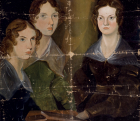Local History
Local history provides rich opportunities to engage children in their immediate local area and understand their own history and how history contributes to a greater overall understanding and bigger picture. In this section you will find articles, guides, and resources to enable you to make local history meaningful.
Sort by:
Date (Newest first) | Title A-Z
Show:
All |
Articles |
Podcasts |
Multipage Articles
-

The Brontë sisters: teaching local history through a focus on one remarkable family
ArticleClick to view -

How to make a toy museum
ArticleClick to view -

Teaching local history through a family
ArticleClick to view -

Using museum and heritage sites to promote higher-level learning at KS2
ArticleClick to view -

How significant is the tragic story of the SS Mendi?
ArticleClick to view -

One of my favourite history places: Bournville
ArticleClick to view -

Home Front Legacy 1914-18
ArticleClick to view -

‘Not again!’ - an additional viewpoint on using railways
ArticleClick to view -

Your Local Railway: a local history investigation in Key Stage 2
ArticleClick to view -

Bringing the Civil War to life in Somerset
ArticleClick to view -

One of my favourite history places: Mount Fitchet Castle
ArticleClick to view -

Learning Outside the Classroom
ArticleClick to view -

Local history and a sense of identity
ArticleClick to view -

The Stone Age conundrum
ArticleClick to view -

Using original sources
ArticleClick to view -

What makes good local history?
ArticleClick to view -

What your local Archive Service can offer to schools
ArticleClick to view -

Using cemeteries as a local history resource
ArticleClick to view -

From Home to the Front: World War I
ArticleClick to view -

Viking and Anglo-Saxon struggle for the kingdom of England
ArticleClick to view

